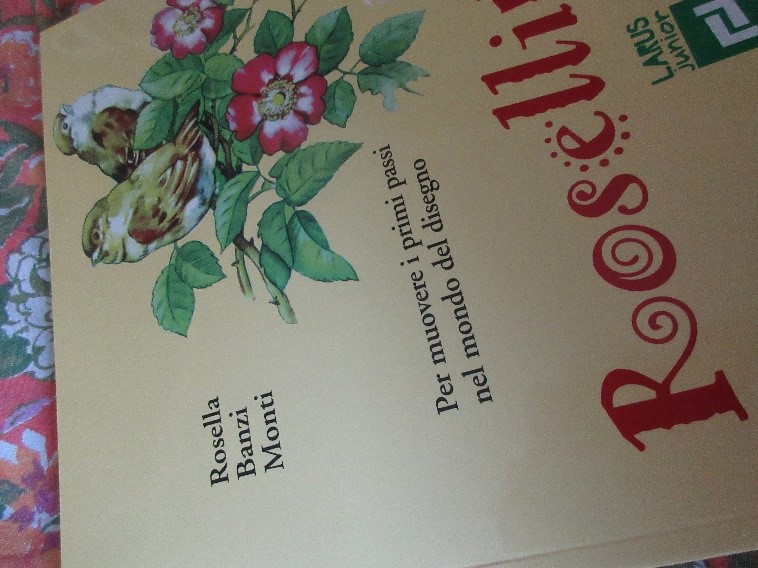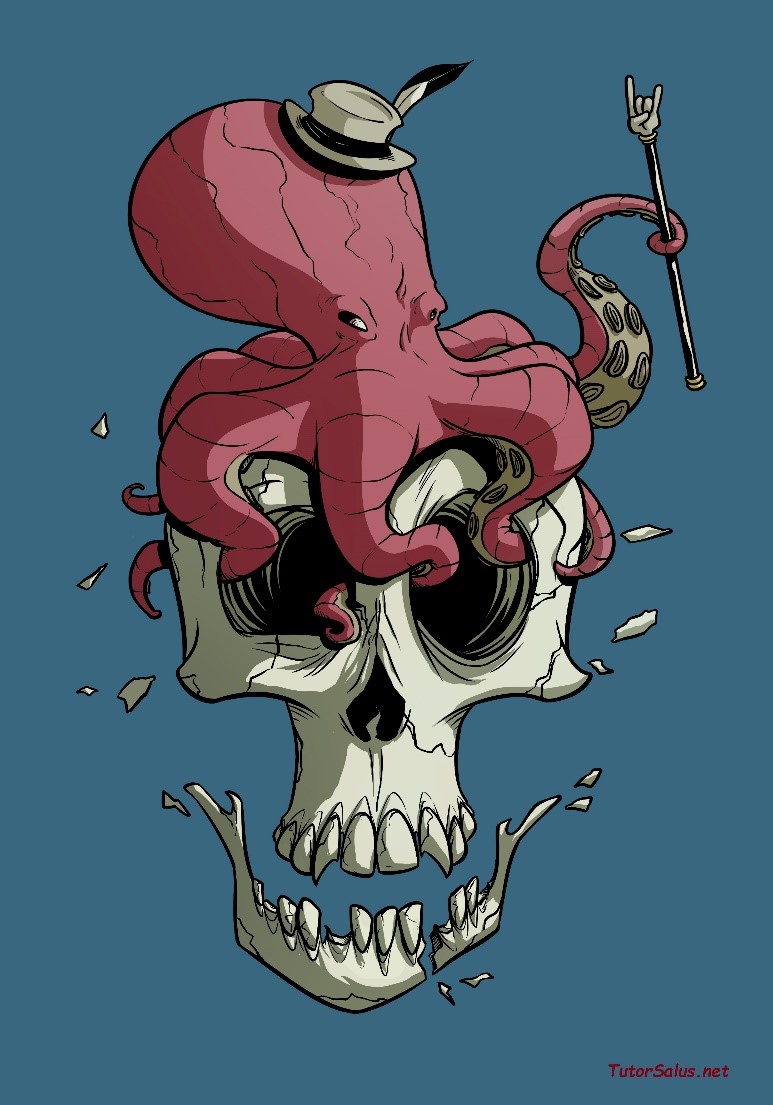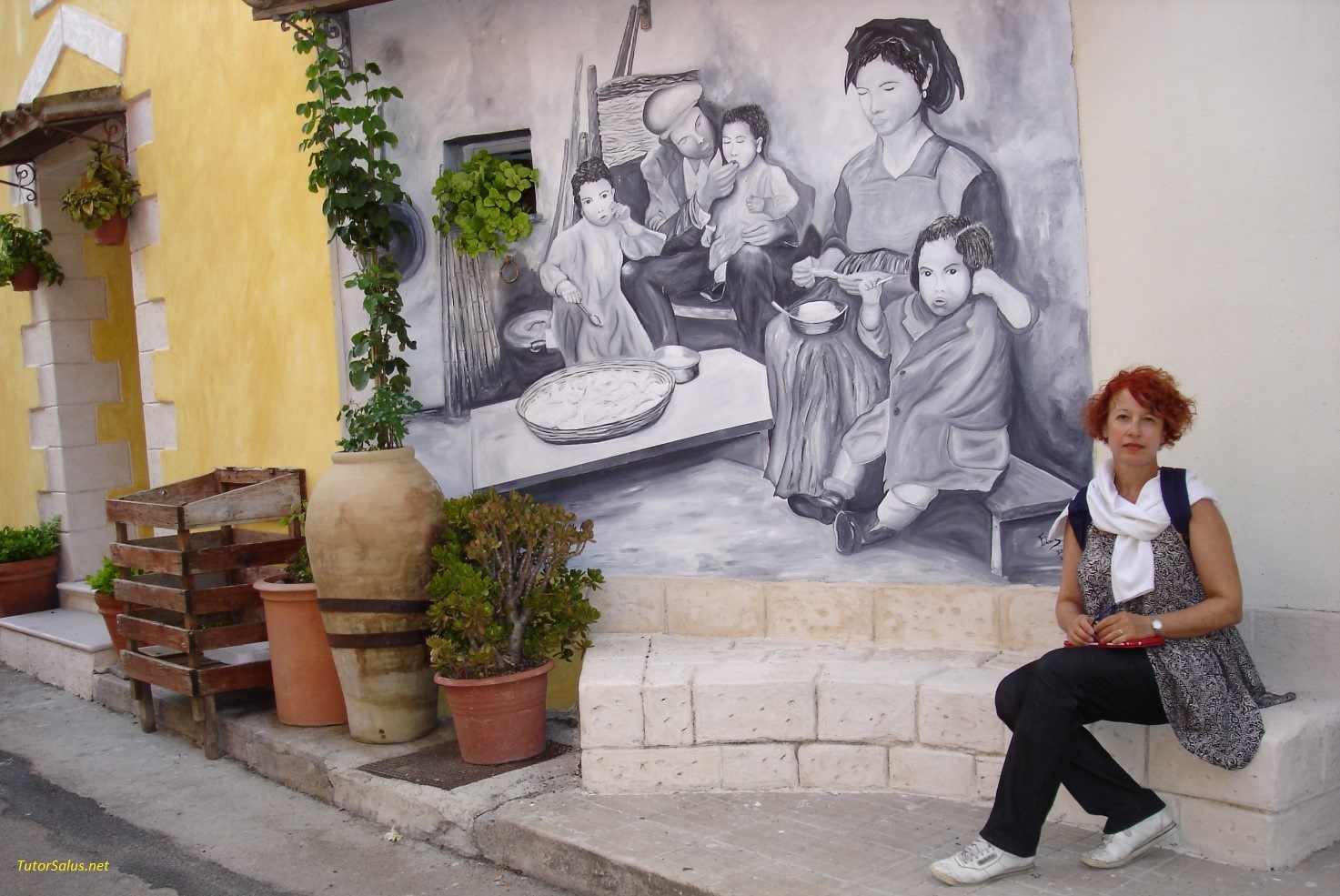To invest in talent.

Original painting by Stefano Frassetto[2].
“Never again a ‘Sonderweg”[3].
It’s the assertion I’ve valued the most in public speeches of Angela Merkel who can comdemn Hitler, as he cynically swapped a core value of dignity and honour for deutsch citizens, already involved into a hardest post-war reconstruction, to justify a policy of aggression and abuse : the word literally is translated with ‘particular way’, referring to the aristocratic attitude not accepting any agreement or alliance, but so evocative for impoverished people also favourable to authoritarian simplifications.
So that, the handshake with which Angela Merkel welcomed the election of Ursula von der Leyen on July 16, 2019 as president of European Commission[4] does remain a flash subverting the historical problem of ‘pink shares’ : and, on the other hand, speaking about Angela Merkel[5] - now at her second mandate as president of European Council – is acknowledging that ‘pink shares’ made, and make also today, smile those who can manage power.
“…For long time they went on saying : women must have courage, women must change, women must obtain jobs, sometimes you have also to give up jobs in favour of women. All of this is great. It was important and we did obtain a lot. But we can take the risk that woman has to become some ‘super human being’ who, from intellectual features up to the exterior looking, from caring family keeping in mind the needs of each up to an organizational capacity, she has to come as close to perfect as possible… We must encourage more women to dare to go out into the open field, to expose themselves to social criticism, to be able to resist that and to not lose heart…”[6]
As a matter of facts, a constant in the policy of Angela Merkel is her referring to an individual capacity of orienting which characterizes the human being, since their childhood : except to withdraw even only occasionally, as we know, and under the pressure of anguish.
“…I remember a gardener in the courtyard of the house where I grew up – my father was an evangelic pastor – a church hospice for mentally disturbed people, managed by the deaconry. The gardener’s collaborators were psychically disturbed too. Of course even other people could come to him, both as they had nothing better to do and as they had questions to ask him; among them was me.
As a child I had a lot of free time, I didn’t go to kindergarten yet. That gardener, an old quite strong man, gave me great basic confidence and great calm.
He had always time for me, which I greatly appreciated, because my mother always didn’t have time, not to mention my father; this man however, who had a lot of work to do, always made time for me. From him you could learn a lot of things about practical life. For example, I’ve learnt how flowering plants are repotted, and to recognize a good cyclamen. From him I learnt how to talk to mentally disabled people.
It was an incredibly hot environment, trusting, good where I could eat soiled carrots, where I could laze, and where I once even received a sip of black tea. It was beautiful. This man aroused in me the feeling of being connected to the earth, to the soil, to nature…”[7]
Born in Hamburg in 1954, at six months she left with her parents for Templin, at eighty kilometers from Berlin where her father had been transferred and where her younger brother and sister were born. In 1961 the construction of Berlin Wall upset the life of the family, as she herself tells about[8] : for that, maybe, in 1989 the falling of that wall appeared to her as a crossroads, and decided to give up her reserch job at the University Department of Physics, to go into politics.
“…With Michael Schindhelm[9] we’ve been working together, our desks were adjacent to the ‘Academy of Sciences’. But above all, we have been talking and talking and talking, about why in DDR[10] wasn’t possible to explore one’s borders, about why everything was so cramped, small, modest… When exactly did he give me the book I don’t remember… The dedication was decisive… He wrote : “Go outdoors!” It was one of the nicest things anyone could say to me in those years. And when I decided to leave, me like many others have gone outdoors, towards the new… Don’t ask yourself what’s not working, but ask what is working. That was the attitude with which, we East and West German people, faced the turning point of that period.”[11]
Elected to the German Parliament at the age of thirty-six, since 2000 Angela Merkel is president of Christian-Democratic Union (CDU). Appointed Chancellor[12] in 2005 she was then elected again, with a nonstop government which is today in its fourth term. But it is with involvement in European Union politics that Angela Merkel rightly entered among the founding fathers of Europe.[13]
Former president of G8[14] in 2007 and in 2015, her policy has been characterized as a matter of fact by substantial reforms in the economic and social fields, which transferred power from central government to local initiatives and authorities : a revolution which Angela Merkel describes ‘peaceful’, recalling the personal memory of the Wall destruction.
Her own guide lines immediately leveraged an increased reliability, in politics as well as in economics, starting however from human value which, until then, it had not found a hearing from the centers of Power in Germany and in Europe.[15] “…We, and this is the truth, have been living for some time consuming our heritage.”[16] “…Future cannot become the dustbin of the unsolved problems of today.”[17]
Last September 16, Ursula von der Leyen gave her first State of the Union address confirming, as a matter of fact, Angela Merkel policy in all these years of mandate : she outlined as ‘historic’ the decision of a ‘common debt’ which can even anticipate a policy of financial integration, still to be defined. This time, however, the president of the European Commission introduced the theme ‘work’ and ‘apprenticeship’ in Politics too.
Addressing to young people, and not only to them, she referred to ‘Next Generation EU’ and to the ‘2021-2027 EU multi-annual financial framework’, which will have to make efforts to provide Europe with help needed for ‘environmental’ and ‘digital’ issues[18], crucial indeed in the next months.
What if these were real news for those who aspire to govern as an honorable and productive profession, instead of deluding themselves that there is a ‘special way’ ?
Marina Bilotta Membretti / Cernusco sul Naviglio – September, 30 2020
[1] “THINK !”, by Giacomo B. Contri January 31, 2020
[2]Stefano Frassetto is born in Turin in 1968. After his degree in Architecture at ‘Politecnico’ he begun as graphic novelist for local magazines. In the ‘90s he edited in France too, on ‘Le Réverbère’ and on ‘Libération’ : then he created ‘Ippo’ for ‘Il Giornalino’ and then the stripe ‘35MQ’ for the swiss magazine ‘20 Minuti’. In 2000 he came into ‘La Stampa’ as portraitist for cultural page and the insert ‘Tuttolibri’, then for the weekly ‘Origami’. Today he works also for the swiss magazine ‘Le Temps’. In 2022 he published his first anthology, ‘35mq: 2012-2022 Dieci anni di inettitudine’.
[3] “Never again a ‘German Sonderweg’”, has been cited from her speech at the Bundestag on February 13, 2003 during the debate on Iraq war : Angela Merkel confirmed Germany joining to NATO and the consequent agreements, even at the cost of providing their own military contingent when required. Here she says ‘Sonderweg’ as an ‘indifference to the agreements’ but she did know the negative accent that listeners will have perceived.// “Angela Merkel, parole di potere. Il pensiero della cancelliera”, at care of Robin Mishra. Edizione italiana a cura di Manuel Kromer, ‘Claudiana editore Srl’ 2012, p.186.
[4] Ursula von der Leyen, physician and member of ‘European People’s Party’ was elected president of ‘European Commission’ by the European Parliament on July 16, 2019 and she has been in office since Decembre 1, 2019 (she was preceded by president Juncker). She will act according to the ‘Lisbon Treaty’ (2007-2009), or ‘Reform Treaty’ of the previous ‘European Commission’ – project however abandoned in 2007 – which regulated the ‘transfer of sovereignty’ between Countries and Union, and vice versa. To the ‘Lisbon Treaty’ they could come thanks also to the work of those who have committed themselves to a rewriting of the Constitution : the ACED ‘Action Committee for European Democracy’, or ‘Amato Group’ from the name of the coordinator and former Italian Prime Minister Giuliano Amato, was supported by the European Commission with an unofficial mandate, and the concluding text (2007) kept the previous Constitution with the criteria that emerged during the consultations with Governments of each Country, thus remaining a reference for the negotiations on the future Treaty.
[5] Angela Merkel is graduated in Physics and was University Researcher, before devoting to politics. Married, she is daughter of a theologian and Lutheran pastor : in 2011 she was elected Chancellor – a public office corresponding to our Italian Prime Minister – after a gradual political career in local administrations.
[6] “Angela Merkel, parole di potere. Il pensiero della cancelliera”, cited above, pp.86-87. The assertion comes from Angela Merkel’ speech in Berlin, on January 26, 2009 for the 90°anniversary of granting the right to vote to women.
[7] “Angela Merkel, parole di potere. Il pensiero della cancelliera”, cited above, pp.199-200, from Angela Merkel’ speech in Hamburg on June 17, 1995 at Kirchentag – biennal meeting of the Evangelical Church, promoted by lay persons and held in a number of cities in Germany.
[8] “I spent my first 35 years of life in the former DDR. I experienced on my skin that values like freedom and democracy are not at all obvious. And I also experienced how much movement can arise from the yearning for freedom…” p.165 in “Angela Merkel, parole di potere. Il pensiero della cancelliera”, cited above from the speech of May 1, 2008 at Aachen.
[9] Michael Schindhelm, Angela Merkel’ colleague at the University ’Academy of Sciences’, and quantum chemist.
[10] ‘DDR’, an abbreviation for ‘Deutsche Demokratische Republik’ : after the demolition of Berlin Wall in 1989, the Republic was governed by the Christian-Democratic Union CDU in which Angela Merkel enroled herself, and then elected up to the office of Chancellor.
[11] “Angela Merkel, parole di potere. Il pensiero della cancelliera”, cited above cit., pp.134-135, from Angela Merkel’ speech at Kiel on October 3, 2006 for the anniversary of German reunification.
[12] Federal Chancellor is the Chief Government in Germany.
[13] “…That’s not a secret : the negotiations for ‘Lisbon Treaty’ did not always go smoothly… It would be not natural in a community of 27 Countries. However, the fact that when it comes to closing – as it happened last year – we always find unity, is a vital force of Europe. Sometimes we should ask ourselves : where does this force come from, as in any difficult moment we can agree ?”, in “Angela Merkel, parole di potere. Il pensiero della cancelliera”, p.163 cited above from the speech held at Aachen on May 1, 2008 after the first semester of Angela Merkel’ presidency at the European Council, characterized by conspicuous work for the ‘Lisbon Treaty’, or ‘Reform Treaty’, because it would have replaced the previous UE Constitution.
[14] ‘G8’ – preceded by ‘G6’ e ‘G7’ and now again ‘G7’ due to the exit of Russia (as EU required in 2014, together with economical sanctions, due to the illegitimate annexation of Crimea and then made definitive by Russia themselves in 2017) – is a political Forum in which Canada, France, Germany, Japan, Italy, United Kingdom, United States of America participate : they meet also annually as an economical forum. Since 1999 ‘G20’ began to meet and, in addition to the heads of governments, also the finance ministers and central bank governors participate, with the aim of favoring an economic and international agreement : part of it are, besides ‘G8’, all the more industrialized Countries, as ‘G20’ represent more than 80% of world GDP-Gross Domestic Product.
[15] The reform of companies taxes, independently from the corporate form of companies themselves, the expansion of childcare facilities and the introduction of an income subsidy during the absence due to the birth of a child - as offered either to the father or to the mother - are political news introduced in Germany in the first government of Angela Merkel.
[16] “Angela Merkel, parole di potere. Il pensiero della cancelliera”, cited above, pp.134-135, from the first Angela Merkel’ big speech, she held on October 1°, 2003 at the ‘Deutsches Historisches Museum’ in Berlin. Between 2008 and 2009, facing the financial crisis which put in difficulty also some of the biggest deutsches companies, the Chancellor Merkel approved a substantial refinancing made by the State to the companies in crisis.
[17] “Angela Merkel, parole di potere. Il pensiero della cancelliera”, cited above, p.105, from Angela Merkel’ speech held on June 13, 2006 at Köningwinter.
[18] Source : I.S.P.I. ‘Istituto per gli Studi di Politica Internazionale’, Milan.







